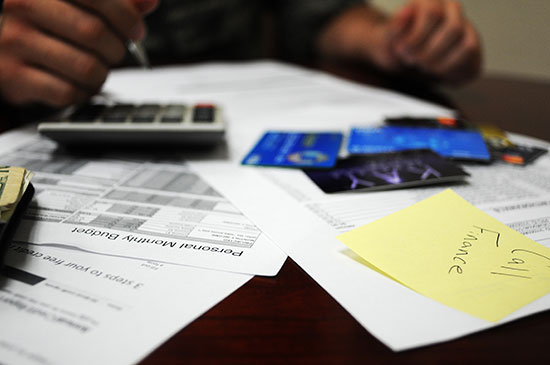
The Ins and Outs of Loans & They’re Effect on your Credit Score
Originally posted on http://ourbusinessnews.com/the-ins-and-outs-of-loans-theyre-effect-on-your-credit-score
There are many ways your credit score can be affected by borrowing money. Not only will they decrease your score if you don’t pay the loan back on time, the applications will even affect your score. Lenders review a variety of things before deciding to give you a loan, and their decision is based on many factors, including what you put on your application and what they can find about you on their own. Another key aspect of whether or not your loan is approved is one to three credit reports from agencies like Experian and Equifax.
Your Credit Score before a Loan
You should take a few steps to improve your credit score before you apply for a loan. One way you can do this is to register to vote. Another way your score can be increased is if you own your home or have lived at the same place for more than a year. It is also important to sever ties with people who are financially irresponsible or if you are connected to a mortgage, a joint bank account, and more. If you have a history of repaying credit agreements and loans, and have evidence of your financial stability, it will be more likely that you’ll be approved for the loan.
Applying for a Loan
Even before you are approved for a loan, applications will affect your credit score. While it depends on a few factors, some say that they are taken off your credit file after you show financially responsible behavior. Still, these applications can remain on your file for a while, up to two years.
Responsible lenders will always run a deep search on your credit history, according to the experts at MoneyPug, a site used to search for same day loans. Not only will applications affect your score, they may prevent you from getting another loan if you are not approved.
Getting Approved
Once you get approved for a loan, you will have the money but there may still be marks on your credit file. If you have a poor credit score, you will be subject to higher interest rates, you will be given a smaller credit limit, and it may be tougher to pay the loan back. If you are new to credit, it may cause you some headaches, it is almost like having bad credit.
When you are using your loan and something makes your credit score drop, you will likely have to pay more even though you were approved before it changed. Lenders regularly review customers’ standing with credit and increase rates of those whose credit has decreased. It is a vicious cycle. This can be quite upsetting, but you should know that by law the credit provider can only increase your interest rate for a valid reason. They are not allowed to increase the interest if you have a debt problem or tell you about any increase if it is linked to a bank.
Paying the Loan Back
After you have received the loan, the next step is to pay it back. If you don’t pay the full amount back, it will show on your credit file. Paying it back on time is also key, banks, lenders, and other entities that require decent credit will see if you have been late on past payments.
The bottom line is that if you have bad credit, you shouldn’t take out a loan. Furthermore, even if you have good credit, you need to be careful. Payday loans stay on your credit file for up to six years, and all repayments remain on your file. It is so important to pay the lender back as soon as you can—the earlier the better.
If you need a loan, make sure your credit score is in good shape. If you do that and pay it back on time, you will be able to not only avoid extra fees and interest, you will have the chance to increase your credit score overall. Understanding that loans will have impact your score, most often in a negative way, you will be as defensive as possible and stay out of the grip of predatory lenders.
